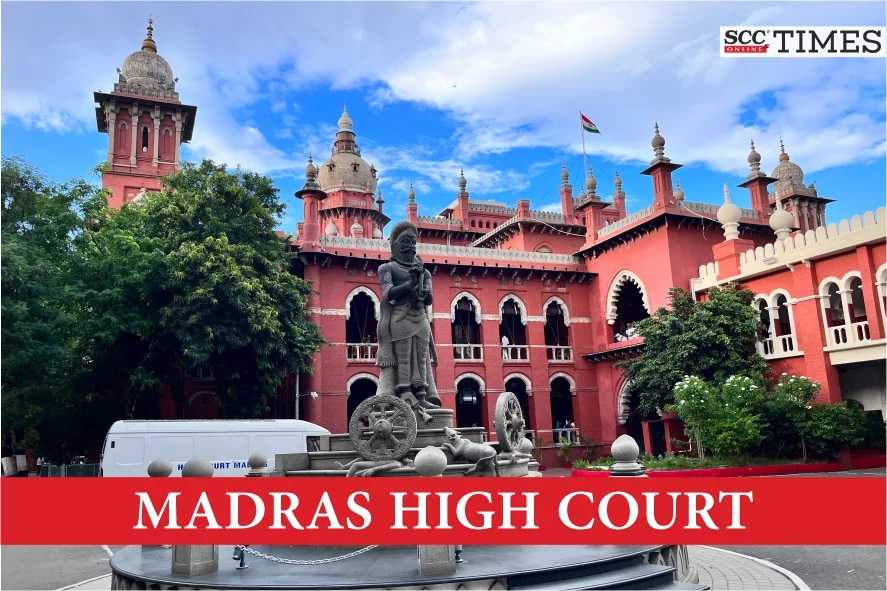Madras High Court: In an appeal filed by the appellant challenging the order dated 13-6-2023, the Division Bench of G.R. Swaminathan* and K. Rajasekar, JJ, held that the condition imposed by an Assistant Commissioner of Police restraining entry of vehicles into Madurai amounted to restriction of freedom of movement under Article 19(1)(d) of Constitution. Thus, the Court set aside the condition which required vehicle pass for devotees attending the Lord Muruga’s religious conference.
Background
The appellants in the present case are the members of an organisation called Hindu Munnani who proposed to conduct a religious conference for the devotees of Lord Muruga on 22-6-2025 in the city of Madurai. They obtained permission from Assistant Commissioner of Police, Anna Nagar Range, Madurai Greater City (ACP) but were subject to over 52 conditions. The appellants were aggrieved by condition no. 7 which restricts entry into Madurai city without a vehicle pass that must be obtained from the respective offices of Deputy Superintendent of Police (DSP). The condition also requires the applicants to submit their RC book, driving license and Aadhar card.
At the first instance, a Single Judge Bench of the Court declined to interfere with the impugned condition. Consequently, a Special Leave Petition was filed before the Supreme Court which was withdrawn with the liberty to file under the Letters Patent jurisdiction of the High Court.
Accordingly, the present writ appeal against the order of a Single Judge dated 13-6-2025 has been filed.
The primary issues in the present case were:
- Whether the ACP had the authority to impose such a condition?
-
Whether the impugned condition was violative of Article 19(1)(d) of the Constitution?
Analysis Law and Decision
With regards to the first issue, the Court observed that the counsel for respondents had relied on Section 41(1) of the Madras City Police Act, 1888 to establish the competency of the ACP in imposing the impugned condition. Section 41(1) of the City Police Act, 1888 allows any Commissioner or police officer above the rank of head constable to:
- direct the conduct of all assemblies, meetings and processions in public places;
- prescribe the routes by which and the times at which such processions may pass;
- keep order in public places and prevent obstructions on the occasion of such assemblies, meetings and processions, and in the neighbourhood of places of worship during the time of worship and in any case when public places may be thronged or liable to be obstructed; and
-
may license and regulate or prohibit the use of music or sound amplifiers in any area.
Thus, the Court stated that it is clear that no officer exercising power under the said provision could pass an order that has operation beyond her territorial limit. The ACP, Anna Nagar Range does not have sway over the entire city of Madurai and as such cannot impose a condition that restricts entry into Madurai.
Therefore, the impugned condition may be struck down on the sole ground of jurisdiction itself.
With regards to the second issue, the Court observed that the right to move freely throughout the territory of India is a fundamental right of all citizens guaranteed under Article 19(1)(d) of Constitution. This freedom can be curtailed on two grounds provided under Article 19(5) of Constitution, which are:
- interest of general public and
-
protection of interests of scheduled tribes
While evaluating the impugned condition, the Court noted that no such condition has been previously imposed when political conferences have been held. The Court held that in absence of any cogent proof, it is evident that the impugned condition is neither reasonable nor proportionate. The respondents have failed to justify and demonstrate how the condition requiring vehicle pass seeks to quell the traffic inconveniences anticipated by them. The Court observed that while prima facie, the requirement of obtaining a pass from the DSP may not seem objectionable, practically several issues may arise leading to unnecessary inconvenience and delay.
In light of the abovementioned considerations, the Court opined that the ACP could not have issued a blanket prohibitory order restraining the entry of vehicles into the city of Madurai without a vehicle pass. The ACP was
- outside the scope of his authority in passing such an order and
-
has failed to justify the reason for such curtailment.
Accordingly, the impugned condition was set aside and the writ appeal was allowed.
[M. Arasupandi v. State of T.N., 2025 SCC OnLine Mad 2834, decided on 20-6-2025]
*Judgement authored by- Justice GR Swaminathan
Advocates who appeared in this case :
For the Petitioner: N Ananthapadmargin-left: 18pt;nabhan, K.P.S. Palanivelrajan (Senior Advocates)
For the Respondents: R. Baskaran (Additional Advocate General), T. Senthil Kumargin-left: 18pt;r (Additional Public Prosecutor)



